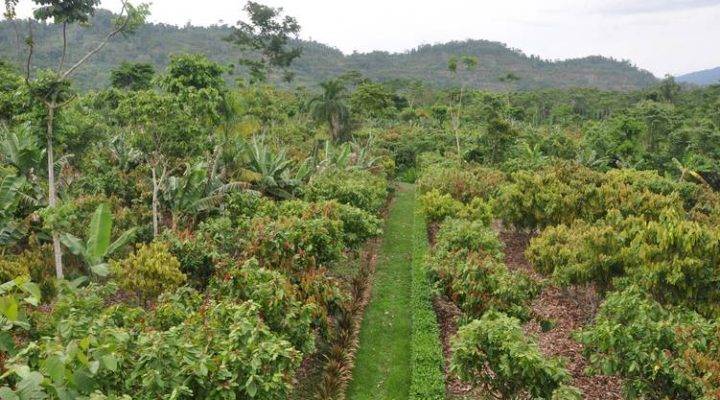Agroforestry boosts global food supply

Trees will continue to play a significant role in global food supply, boosting diversity and increasing farmers’ earning power even with the fast changing climate, researchers at the World Agroforestry and Centre (ICRAF) and Center for International Forestry Research (CIFOR) say.
In a recent virtual forum, researchers acknowledged that trees remain central to ensuring food supply is abundant and environmentally sustainable as the world faces increased climate change risks. .
“For instance is cocoa plantation in West Africa, we are promoting agroforestry models that will add value to farming, introducing trees that will diversify revenue, diet and still sustain production of cocoa for farmers, “ observed Dr Christophe Kouame, a researcher and the CIFOR-ICRAF representative in Ivory Coast.
Similar agroforestry models are being introduced to coffee and tea farmers in East Africa to diversify their incomes. Researchers are also seeking ways in which trees can lay a role in reducing biodiversity loss and soil degradation brought about by agriculture without the use of fertilizers and chemicals.
Incorporating nitrogen fixing tree species in agroforestry systems has been hailed as a way of weaning off land from expensive and environmentally destructive fertilizers and chemicals.
For instance, researchers from India indicate that practicing natural agriculture, free of chemical inputs, leads to increased incomes and yields in 10 states where more than three million farmers benefited.
“These techniques are also increasing microbial activities in the soil and cutting water use by up to 50 per cent, making it an alternative approach to agriculture that most researchers have called for, “ observed Dr Rajiv Kumar, the vice-chairman at the Institution of Transforming India.
Researchers believe food production is the major driver of deforestation across the world. As populations rise, countries are clearing more forests to expand their agriculture. After years of poor agricultural practices like mono cropping, use of chemical fertilizers and a drift from nature-driven approaches to growing crops, the food system has been damaged, experts agreed.
Not only are these practices contributing to climate change, biodiversity loss and land degradation, but they are exacerbating inequalities and a range of interconnected problems that are putting life on earth at risk and threatening human health.











